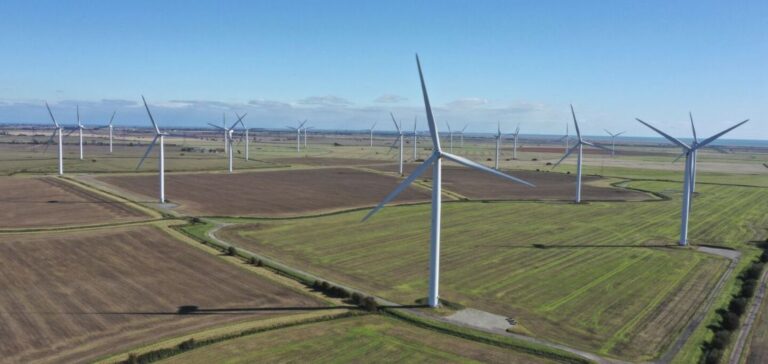U.S. President Donald Trump recently urged the United Kingdom to significantly reduce its investment in wind energy, which he describes as costly, to boost offshore oil drilling activities in the North Sea. According to Trump, the remaining reserves could ensure profitable exploitation for a century, with Aberdeen, Scotland, identified as a key hub for this revival. This statement comes shortly after both countries signed a partial trade agreement aimed at strengthening their bilateral exchanges. The American leader’s remarks have nonetheless raised controversy regarding potential conflicts of interest, particularly linked to his own economic interests in Aberdeen.
Disputed Oil Reserves
Donald Trump’s claims about abundant oil reserves in the North Sea have elicited mixed reactions from energy sector specialists. Sugandha Srivastav, an economist at the Smith School of Enterprise and the Environment at the University of Oxford, notably disputes these claims, estimating that the remaining quantities of oil and gas there are significantly lower than the American president asserts. The researcher emphasizes that extracting the remaining reserves would represent a high economic cost for the United Kingdom, negatively impacting taxpayers. Indeed, exploiting these offshore oil resources often involves substantial investments, particularly in advanced drilling technologies.
Furthermore, Trump’s suggestion comes at a strategic moment for the UK, as the country seeks to balance its energy mix while stabilizing domestic energy costs. Trump also criticizes the current British tax regime, which he considers outdated, claiming a modernized fiscal system favorable to the oil industry could rapidly reduce the country’s energy costs. However, this proposal also raises the sensitive question of potential economic advantages for American companies that might invest in these new British offshore drilling opportunities.
Impact on British Energy Strategy
The stance expressed by Donald Trump comes as the UK renewable energy sector, notably offshore wind power, continues to experience significant growth, driven by private investment and public subsidies. Despite notable reductions in production costs in recent years, wind turbines remain economically and politically contentious, mainly due to high initial costs and criticisms related to their integration into coastal landscapes. The American president explicitly labeled these facilities inefficient and aesthetically problematic—arguments frequently echoed by his supporters across the Atlantic.
Yet, according to recent economic analyses, the overall cost of wind energy is now competitive with fossil fuels such as natural gas or oil. Sugandha Srivastav thus highlights the long-term economic appeal of wind power, despite political and aesthetic criticisms voiced by President Trump. As of now, the British government has not publicly reacted to the American recommendations, likely due to the diplomatic and economic delicacy of the current situation between London and Washington.
Potential Economic Conflicts of Interest
President Trump’s recent recommendations regarding the UK’s energy choices also raise questions about potential personal or economic conflicts of interest. The Trump family owns a hotel and golf resort complex in Aberdeen, a Scottish city cited by the American president as a potential epicenter of offshore oil drilling activity. The geographic proximity of this property to proposed offshore drilling areas could theoretically influence its long-term economic value directly.
This situation contributes to the caution of British authorities, who face a delicate diplomatic and energy policy dilemma. The recent trade agreement between the United States and the United Kingdom strengthens economic ties between the two countries but also adds additional political pressure on the British government’s strategic choices. In this context, the energy sector and international investors will closely monitor London’s forthcoming decisions, which could have significant implications for the UK’s energy future.






















